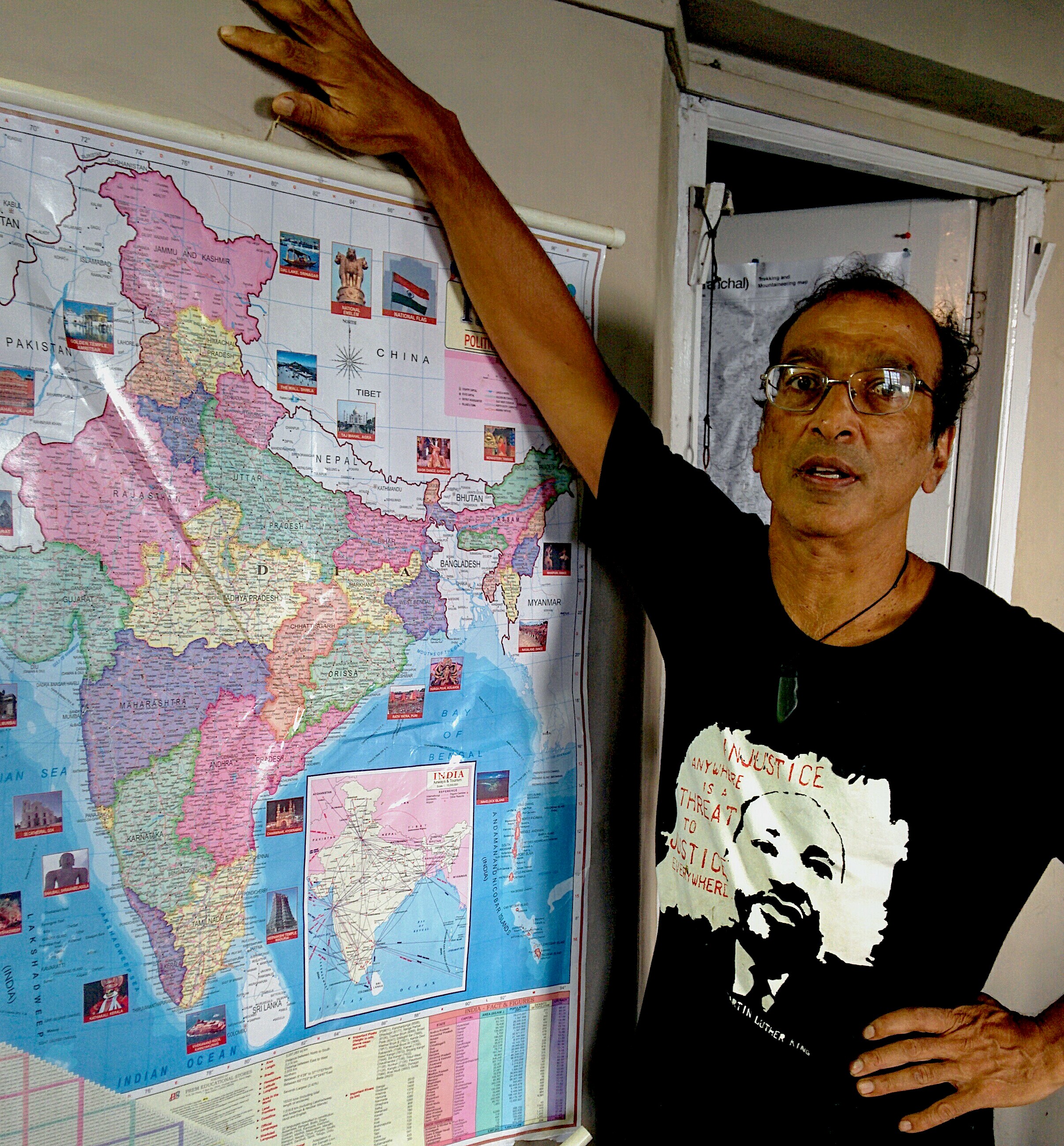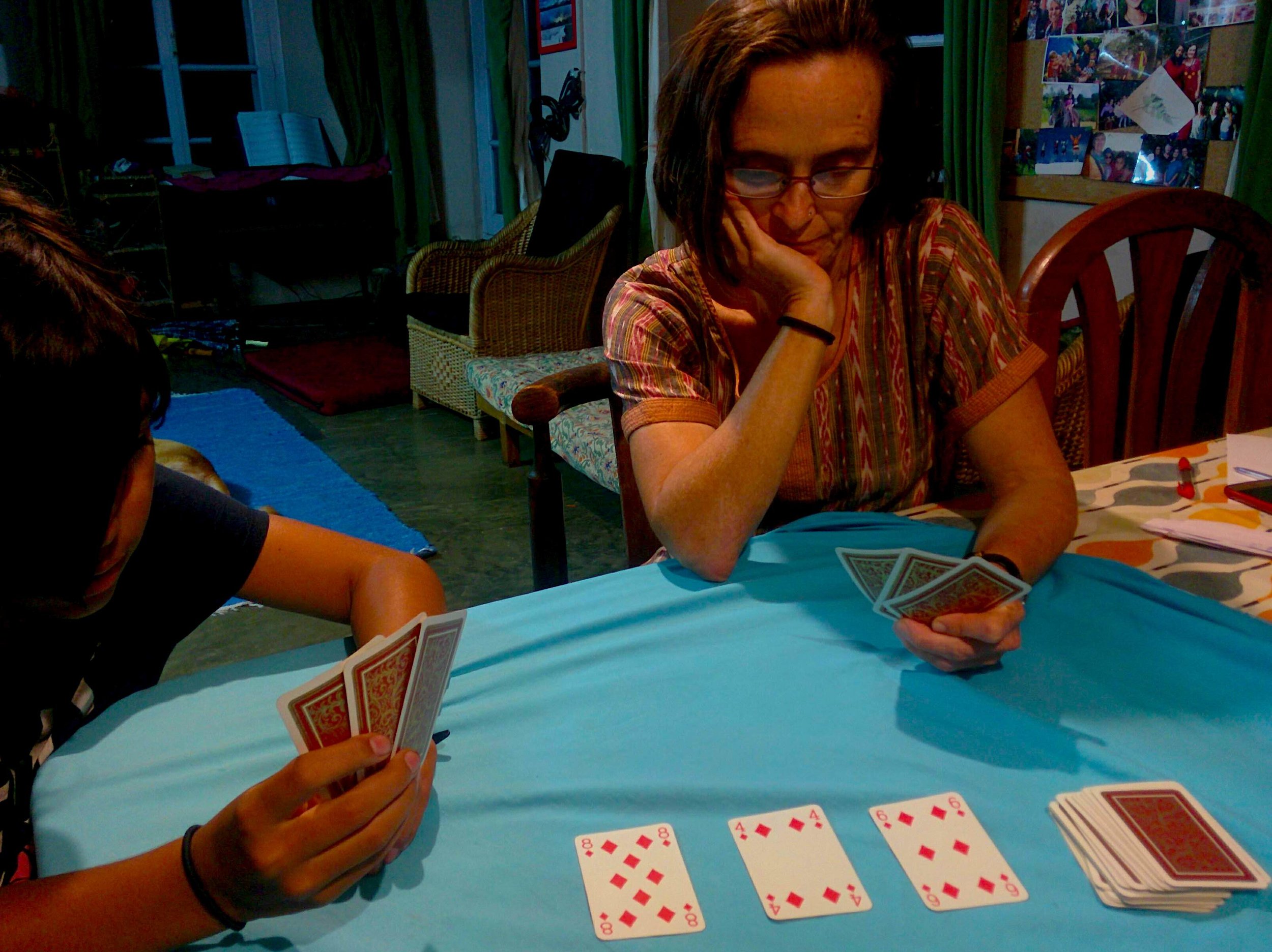In “Storm in a Coffee Cup” I suggested “replacing a system by a better one” as a definition of development. What is it called when a system is replaced by a worse one? “Privatisation” perhaps.
For The World Bank privatisation is a technical solution for efficiency and effectiveness. Alston sees an economic/political philosophy that puts bars between rights holders and their rights.
In this just released report, essential reading for anyone working in development, the UN special rapporteur on extreme poverty Philip Alston excoriates privatisation. It is disastrous for human rights and creates poverty and inequality he says. Putting goods and services under market control is problematic from a development perspective because anything the market cannot capture and value is not valued in decisions. Anything Adam Smith’s “ invisible hand" can’t hold is a market failure and simply not factored into the market’s reshaping of society. But many (?all) of the most important dimensions of life (e.g. biodiversity, equality, justice)- are just such things. Either they are all market failures else the market itself is a failure. I am of the latter view and so is Philip Alston. In his analysis privatisation is unjust and bad development, yet it is one of the most common methods enforced to supposedly improve the functioning of poor countries and the lives of their citizens. Why?
The World Bank, the world’s biggest development agency is strongly pro-privatisation and market led development. So are the world’s most powerful countries. Even the United Nations is often pro-market… The big players in the contexts in which we work want us to help putting the world’s future in Adam Smith’s invisible hand. For them privatisation is a technical solution to issues of efficiency and resource management. Alston (and I) see privatisation as a political philosophy more than a neutral technical solution, a way to shift power and control from rights holders to elites. In earlier times resources and services were controlled by governments within .geographical boundaries. With globalisation and developments in transportation and communication technology, resources can cross borders and move in and out of the ambit of elected governments. Privatisation and the establishment and defence of market led development is a way to control people and resources in this globalised world where borders are porous to resources. Though keenly promoted by the winners in the current world order I think development practitioners should be prepared to oppose privatisation as a valid development strategy.
My Development Studies thesis was on “Tenure Review” in New Zealand. A century ago a large part of my country, to which all citizens had rights, was leased to individuals. New Zealand’s economy boomed as our high country tussocklands were repeatedly burned and overstocked- mined of their natural capital if you like. Low lying land remained profitable but high steep ground (the majority) was degraded by invasive weeds, rabbits and erosion. Under Tenure Review the government (i.e. New Zealand’s citizens) took back the unprofitable degraded parts and paid the lease holders to become private owners of the profitable areas.In whose interest was a law under which New Zealand’s citizens handed over all rights to the profitable bits of our High Country? It is no surprise that this “solution” to ecologically unsound management was promoted by an economically liberal government. “Good economics, and positive evolution of property rights” said our leaders “equals good development”. To me unsustainable land management followed by privatising gains and nationalising losses is bad development and unjust .
Overstocked, repeatedly burnt, eroded and overrun by rabbits and invasive weeds New Zealand High country tussock lands became unprofitable . The solution? Give them back to the people of New Zealand!. Photo courtesy Rob Suisted, www.naturespic.com.
On a global scale the same thing happens again and again- all manner of goods and services from prisons to education to health to roads to land is privatised. But not all essential resources, resource management and services are privatised- just potentially profitable ones. Private operators leave governments to manage important but unprofitable resources and services and leave all humanity to share the “collateral damage’ of their actions. The whole planet is left to pick up the tab for climate change, crashing biodiversity and the invisible hand’s other slips while a few shareholders take all the profits from oil, new medicines derived from” tropical forests, palm oil grown on land that once supported tropical forests…. The modern mantra? Privatise the gains, globalise the costs”.
This philosophy insidiously works its way into development at local scales too. This year Cambodian villagers told me about a rich politician who privatised their dam, re-dredged it and now sells them rights to use water that was always theirs. The World Bank would approve of this efficient private enterprise but as development practitioners I believe we have to be aware of, and resist this kind of “development”. We. should look warily when asked to participate in pubic/private partnerships. We have to ask in whose interests resources are being managed- large groups of rights holders or small groups of share holders and to try to change systems to include right’s holders voices not just share holders’. I totally agree with Alston who says we need a systemic and philosophical shift, not merely tweaks and mitigation as unjust privatisation marches on. Thankfully his report carries the weight of a United Nations publication.
Alston asks and answers his questions from a human rights point of view. But privatisation is a development question too. Markets, free and liberal (whose freedom and whose liberation are we talking about?) remove rights and side-line those who cannot shout. In today’s world only money shouts. Money and weapons. That means rich, heavily armed people become a small group of shareholders in “Globalise the World Inc. “. They can tell the world what our development questions are, and provide the answers. Tell poor people to reproduce less, sell their labour and resources on the free market, stay out of rich countries (unless they are skilled), and take a whole lot of pollution in return. Privatisation is part of that unjust minority world answer. Poor people, unskilled people, indigenous people. the natural world, the atmosphere, concepts like equality and justice do not have weapons or money. They become marginalised and voiceless…
…and development practitioners should be speaking for the voiceless, trying to get their needs factored into local and global decisions.
Here is the brief summary of Alston’s article and two quotes from French thinkers which to me capture the essence of what this is all about.
“Privatization is generally presented as a technical solution for managing resources and reducing fiscal deficits, but in fact, it is an integral part of an economic and social philosophy of governance. Key international actors now promote it aggressively without regard to its human rights implications or consequences, while most human rights bodies have either ignored the phenomenon or assumed that tweaking existing procedures provides an adequate response. Yet privatization often involves the systematic elimination of human rights protections and further marginalization of the interests of low-income earners and those living in poverty. Existing human rights accountability mechanisms are clearly inadequate for dealing with the challenges presented by large-scale and widespread privatization. Human rights proponents need to fundamentally reconsider their approach”. - Summary of Alston’s report, Oct 2018. Insert “Development” wherever Alston writes “human rights”- Jeph
“If I were asked to answer the following question: What is slavery? and I should answer in one word, It is murder!, my meaning would be understood at once. No extended argument would be required to show that the power to remove a man's mind, will, and personality, is the power of life and death, and that it makes a man a slave. It is murder. Why, then, to this other question: What is property? may I not likewise answer, It is robbery!, without the certainty of being misunderstood; the second proposition being no other than a transformation of the first? “— Pierre-Joseph Proudhon, What is Property? 1840
"The first man who, having enclosed a piece of ground, bethought himself of saying 'This is mine', and found people simple enough to believe him, was the real founder of civil society. From how many crimes, wars, and murders, from how many horrors and misfortunes might not any one have saved mankind, by pulling up the stakes, or filling up the ditch, and crying to his fellows: Beware of listening to this impostor; you are undone if you once forget that the fruits of the earth belong to us all, and the earth itself to nobody”- Jean-Jacques Rousseau in. his 1854 Discourse on Inequality:












